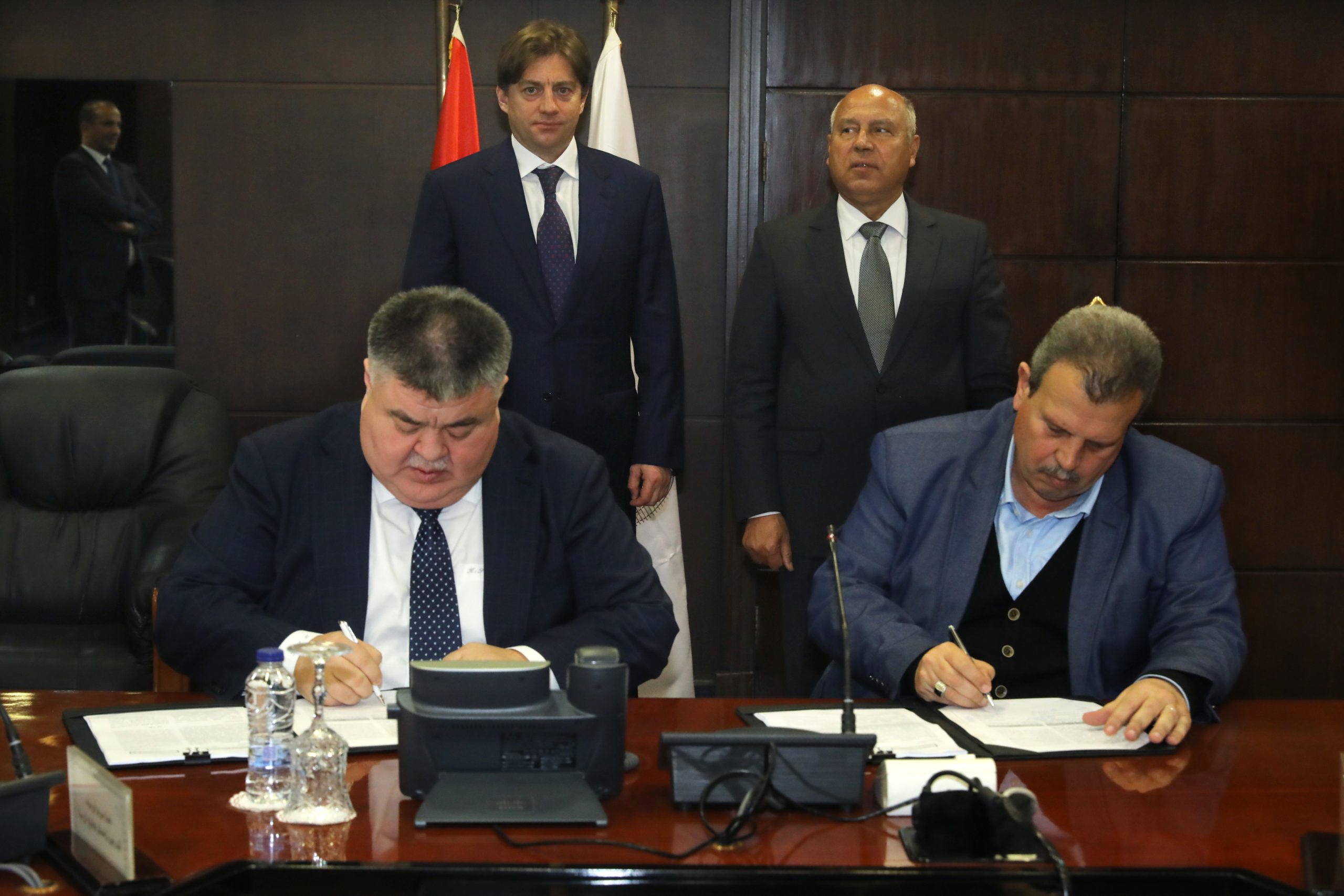 The head of Egyptian National Railways, Mohamed Amer, and the Vice President of Transmashholding (TMH), Sergo Kurbanov, signed a framework agreement for the maintenance of passenger railcars shipped from Russia and Hungary under the contract signed in 2018.
The head of Egyptian National Railways, Mohamed Amer, and the Vice President of Transmashholding (TMH), Sergo Kurbanov, signed a framework agreement for the maintenance of passenger railcars shipped from Russia and Hungary under the contract signed in 2018.
The EUR 430 million agreement was signed in Cairo in the presence of the Minister of Transport of Egypt and TMH CEO Kirill Lipa.
TMH will provide technical support for the shipped coached throughout 12 years. The Russian manufacturer will also design and equip a specialised rail depot in suburban Cairo, train local workforce, conduct maintenance of the rolling stock, and supply spare parts. The depot is expected to become a part of a rail industrial cluster, developed by the Egyptian side in partnership with leading global companies.
In 2018 the two companies signed a EUR 1 billion contract for the supply of 1,300 passenger railcars of five types. The order included 500 3-class coaches with forced ventilation, 500 3-railcars with air conditioning, 180 2-class cars with air conditioning, 90 1-class cars with air conditioning and 30 2-class cars with air conditioning and cafeteria. The rolling stock is manufactured in Russia and Hungary (at Dunakeszi facility, acquired by THM in 2020) for which TVZ (TMH plant in Tver) was responsible for the transfer of technology. In 2021, the Russian side fulfilled its part of the contract, and since then the production in continued in Hungary under the supervision from TVZ. In September 2021, the President of Egypt and the CEO of THM Kirill Lipa have unveiled in Alexandria the first 14 third class railcars.
In 2022, the contract was extended by 50 passenger cars with vending areas bringing the entire supplied fleet to 1,350 vehicles. To the date, the Egyptian rail company received 725 cars.
The trains with new passenger railcars are operated daily on the lines linking Cairo and Alexandria (208 km) and on the 473 km long Cairo – Sohag railway line.
The cars comply with all passenger railway safety requirements and provide a modern level of comfort. Their lifecycle in Egyptian continental and coastal operation conditions is 40 years.
Share on:






